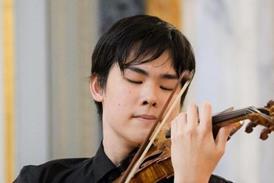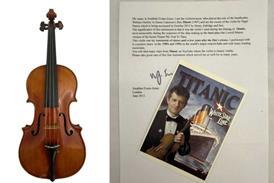The mechanics of string playing can be perfected at a relatively early age, but a youngster cannot have anything meaningful to communicate

The worst result that can emerge from a musical competition is for the jury to give the first prize to a teenager. I have seen it happen so many times, and I would like to know where all those young winners have gone. Most have disappeared, hardly any have had more than an average career, and many have been warped by the experience.
It dismays me to see normally sane jury members go mad because some 14-year-old can play a violin well. The mechanics of string playing can be perfected at a relatively early age, but a youngster cannot have anything meaningful to communicate. He or she needs to have been in love, to have experienced something of life, and to have been given time for interpretations to mature. One famous violinist of today was projected on to the international stage far too early: as a result, his interpretations are stuck at the point they had reached when he was a teenager.
A young player needs time to build up a representative repertoire. Dish out an important prize too early, and the poor winner will soon find that three concertos and two recital programmes are not enough for a career.
The most fatuous thing I have heard jury members say is: ‘We thought that by choosing X or Y we would be investing in the future.’ But what about the futures of the players in their twenties who are passed over? Is it not deeply unfair and insulting to them? I recall one competition in which the jury had to choose between an 18-year-old boy and a 27-year-old woman. The latter’s semi-final recital was one of the best musical experiences of my life and she played well in the final, but the nod went to the boy. He has had a good career, she has had a great career. The gap between them was apparent at the time, but the jurors were unduly influenced by the boy’s youth.
I do not believe that Ginette Neveu at 15 was better than David Oistrakh at 27, as the outcome of the 1935 Wieniawski Competition implied (admittedly even the French juror, Gabriel Bouillon, felt that anti-Semitism was involved). Neveu went on to have a splendid, sadly curtailed, career, whereas Oistrakh won his next competition and became a towering colossus. Yet the imbroglio still stands out as one of the more asinine competition injustices.
I wish I had a pound for each time I have been told what a great violinist Yehudi Menuhin was at 16. Yes, he was good, but he was much better 10, 20 or 30 years later, even if his command of the mechanics sometimes faltered. His recording of the Elgar Concerto set a baleful tradition of playing it too slowly and the composer, who conducted, was far too indulgent. One hearing of Albert Sammons’s performance will show what I mean. Menuhin had no knowledge of life until the war years, by which time he really was great.
The other day I saw a prodigy of the 1930s referred to as ‘the great Josef Hassid’. The writer had no evidence for such a claim. The tragic Hassid left recordings of eight short pieces, played with flair and brilliance but no depth. How could he be profound at 15 or 16? Similarly, I regularly see Michael Rabin described as great. Very good, yes, even extremely good, but a great violinist is one who has stayed the course and has shown an ability to move audiences.
I am often asked to hear some prodigy and I always try to wriggle out of the invitation. I simply do not know what to say or write about such players. My feeling on each occasion is: ‘He or she played well, but will play even better in 10 or 20 years’ time.’ As I cannot keep saying the same thing, I hereby serve notice that my days of listening to prodigies are past. I wish all prodigies well, as I wish all violinists, violists, cellists and bassists well, but I hope they will not win any competitions until they are good and ready.
This article was published in The Strad's December 2013 issue. Click here to subscribe or login. Alternatively, download on desktop computer or through The Strad App.
Read: Does winning a violin competition at an early age place too much pressure on the artist?



































No comments yet